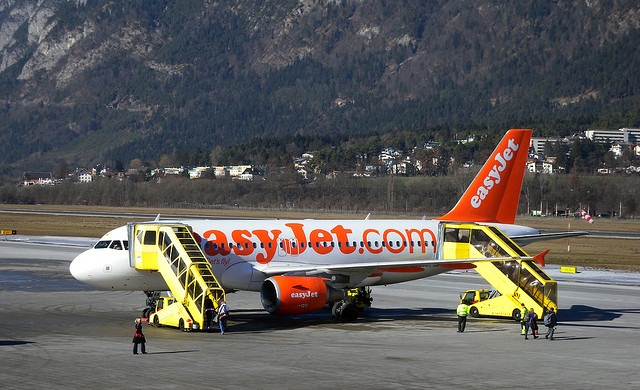easyJet’s (LSE:EZJ) share price continued its year-long ascent this morning after some mild turbulence over the past three months. By 1:00 pm today EZJ’s share price was 1,359 pence, up 103.0 from 1,256, an increase of 8.2% on the day.

The company released its final results for the year ending 30 September this morning, and the results were quite impressive.
- 51% increase in profits to £478 million (2012: £317 million)
- 10% increase in total revenue to £4,258 (2012: £3,854 million)
- 3% increase in operating margin basis points from 8.2% to 11.2%
- 55.8% proposed increase in dividend per share from 21.5 to 33.5 pence
- Revenue per seat: up 7.0%
- Seats flown: up 3.3%
- Return on capital: up 6.1%
- On-time performance rating: 87%
If the numbers are interesting, easyJet’s strategic plan is exciting. Clearly, executive management understands the issues faced by the airline industry, and its strategy, therefore, continues to be robustly successful. Whilst legacy airlines struggle to transform themselves, easyJet keeps carving out a larger piece of its niche and, at the same time, proving that it can be done profitably.
Building a low-cost airline is much more than offering low fares. In fact, the low fares are not a feature of a low-cost airline, they are a benefit made possible by operating the airline at controlled, lower than average costs. The company summed up its advantage in the competitive skyscape: “easyJet has a cost advantage over its competitors in the airports that it operates from, allowing it to offer competitive and affordable fares. Its key competitors in the primary airports it operates from tend to be legacy carriers with older, less efficient aircraft, lower asset utilisation, lower seat densities and load factors and higher levels of fixed costs. easyJet’s lower cost base enables it to offer the affordable fares its customers value.”
Moving forward, the entire cost-driven strategy remains key to the company’s expansion and growth. “easyJet is committed to maintaining its structural cost advantage against the legacy and charter operators who are its major competitors in the airports it operates from. Under the sponsorship of the Chief Financial Officer, easyJet lean is a programme designed to ensure unit cost growth excluding fuel is kept below the prevailing market inflation. The focus is on both reducing existing costs and initiatives designed to keep cost out, with targets set through to 2015 and beyond.”
Speaking of expansion and growth, easyJet also announced today that it will launch two additional routes out of Gatwick on 30 March 2014. Those flights will operate twice daily to Brussels and four times weekly to Strasbourg, adding to the 107 routes already being flown out of the airport. The company projects that it will be flying close to 1.3 million additional passengers per year following March 2013 and it will be hiring around 200 additional flight and cabin crew members in the interim to ensure service to scale.
Carolyn McCall, easyJet CEO, said “easyJet has delivered a strong full year performance and made significant progress against executing its strategic priorities. The results reflect easyJet’s continued structural advantage in the European short-haul market against both the legacy and low cost competition.”
Looking ahead, “easyJet expects that legacy carriers will continue to cut capacity from their unprofitable short-haul operations but that there will be increased competition from the new low-cost carriers looking to expand. Whilst the benign capacity environment is unlikely to continue in the short term, there will continue to be retrenchment by less efficient airlines and therefore opportunities for easyJet to continue to take profitable share in its core markets.”
Its keen awareness of the need to maintain tightly-controlled operational efficiency will be the foundation upon which easyJet will continue to flourish.


 Hot Features
Hot Features












